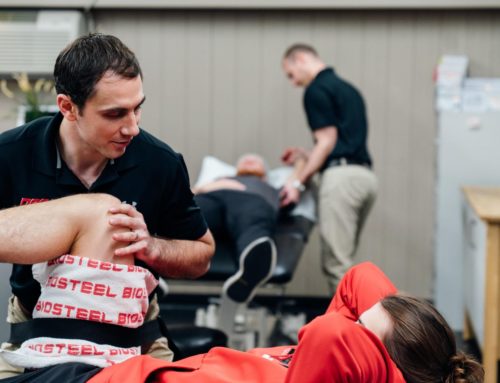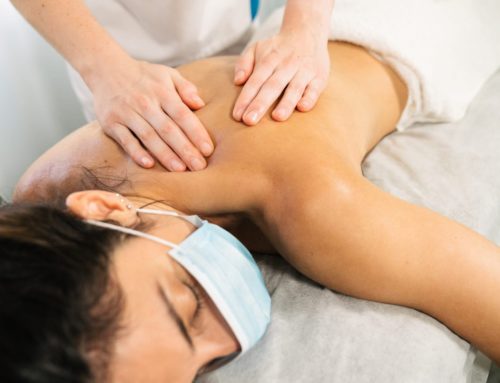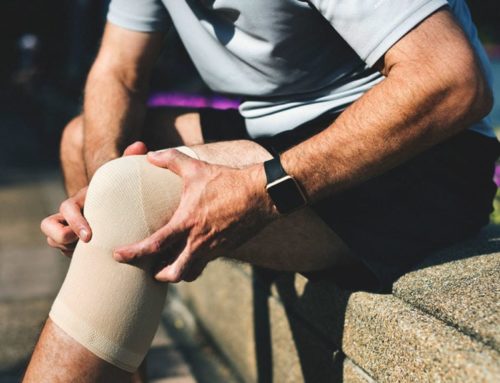We all know that working out is good for our physical, mental and emotional health, but did you know that recovery is equally as important? Recovery is the process in which muscles receive their nutrients and repair themselves after intense use. It helps to reduce fatigue and enhance performance. Common recovery techniques include stretching, active recovery, massage, compression garments and hydrotherapy – just to name a few.
But what is the best recovery tool? What is going to give you the biggest bang for your buck and optimize your workouts?
Sleep
Sleep is the foundation for recovery and unfortunately many people are lacking in it. It is thought that 1 in 3 Canadian adults are not getting enough sleep, 1 in 2 have trouble falling asleep and 1 in 3 have difficulty staying awake during waking hours. This is a huge problem!
Sleep helps us to regulate our nerves and immune system and is necessary to recover and regenerate. Not only does it help us recover, but it also enhances our injury resilience, improves our skill acquisition, and is essential to our ability to perform optimally.
Researchers at John Hopkins state that there are many detrimental effects of sleep deprivation. There is a 33% increased risk of dementia, a 48% risk of developing heart disease, an increased risk of high blood pressure, decreased immunity, 36% increased risk for colorectal cancer and 3x the risk for type 2 diabetes. Loss of sleep can cause greater cravings for sweets, salty and starchy foods. There is a 50% higher risk for obesity if you get less than 5 hours of sleep per night.
It is also though that sleep deprivation can age your brain by 3-5 years!
While you may not notice loss of sleep initially, the lack of it will wear on your system and it will eventually manifest as some sort of outward dysfunction. This could be pain, injury, illness, decreased performance, or chronic fatigue to name a few. Have you ever had a muscle injury that just wouldn’t go away? Studies suggest that there is a strong correlation between persistent pain and lack of sleep. Similarly, sleep impairments can reliably predict new incidents of musculoskeletal pain in healthy individuals.
From a performance perspective, research has shown that inadequate sleep can limit the maximum strength that you have to perform compound movements during resistance training (Knowles, 2018) . A study on running endurance found that participants covered 3% less distance on less sleep than they did when they were fully rested (Oliver, 2009).
Researchers also speculate that sleep can help athletic performance by releasing growth hormone, which stimulates muscle growth, repair, bone building, and fat burning. Deep sleep in particular is when growth hormone is released, and studies have shown that the loss of sleep can slow its release. If you don’t rest, your muscles can’t fully restock energy stores. This loss of energy can reduce your muscles function and total work capacity. Sleep also helps to repair the muscles you broke down during your workout by increasing protein synthesis and mobilizing free fatty acids to provide you with energy (Fullagar, 2014).
No matter how smart you are training or how well you are fuelling, missing out on sleep will have a negative effect on your overall health and performance. The goal is 7-8 hours of sleep a night. Aim for 8 hours if you are doing high intensity workouts. If you are really tired, dial back the intensity and duration of your workout or try a low intensity option (such as walking, swimming, or yoga).
Here are a few tips to help improve your sleep:
- Make sleep a priority.
- Keep your room comfortable – quiet and dark and a comfortable temperature .
- Schedule 1-2 hours of downtime prior to going to sleep. Try to include relaxing activities with low light exposure and no screen time. This will help your body unwind before bed and help you fall asleep.
- Practice strategies to calm your nervous system (think rest and digest instead of fight or flight). Calming your nervous system can help you move into a state of restfulness. Things like mindfulness, meditation, breathing, and regular exercise can all help.
- Stick to a schedule so your body knows when it’s time for sleep.
- Avoid stimulating activities during the 1-2 hours before bed. Avoid video games, TV, time on your phone, and exercising right before bed.
- Avoid the consumption of caffeine, nicotine or alcohol before bed and try to avoid eating too close to bedtime.
Overall, getting an adequate amount of sleep every night is one of the best things you can do for your physical, mental, and emotional wellbeing. If sleep is something you struggle with, try these tips but don’t hesitate to reach out to a health care provide who can provide you with more guidance to get your sleep back on track.
Written by: Kathleen White, Physiotherapist
References:
Fullagar. (2014). Sleep and Athletic Performance: The effects of sleep loss on exercise performance, and physiological and cognitive responses to exercise . Sports Medicine, 45(2) .
Knowles. (2018). Inadequate sleep and muscle strength: Implications for resistance training. J Sci Med Sport, 959-968.
Oliver. (2009). One night of sleep deprivation decreases treadmill endurance performance . Eur J Appl Physiol, 107 (2) 155-161.






